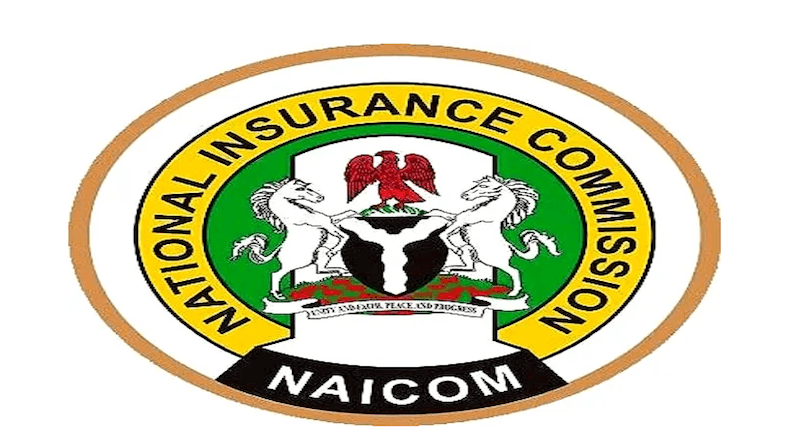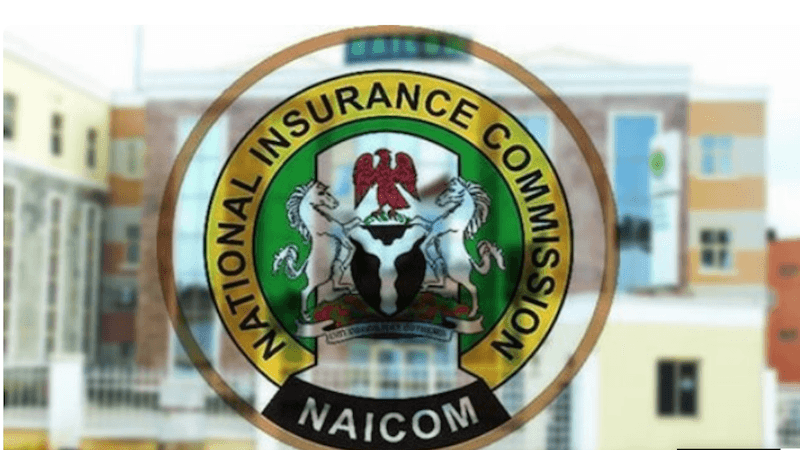As insurance operators count down to the recapitalisation deadline, Ebere Nwoji takes a look at how firms are faring in the exercise
Barely seven months to the end of the ongoing insurance sector recapitalisation initiated by the National Insurance Commission(NAICOM), most operators are still struggling to meet the deadline.
Indeed, an examination of their level of success so far, showed that only few of the existing firms have advanced in their work plans.
These are mainly firms who have foreign parent bodies, few who stand on their own and who have been known to be strong and some others whose majority shareholdings are in the hands of state government.
Investigation conducted by THISDAY in this regard indicated that whereas NAICOM has approved the work plan of 44 firms, it has been difficult for most of them to translate these plans into actions that would yield the desired results. It was gathered that investors appear reluctant in committing their funds.
This is so because out of firms whose recapitalisation plans have been approved, no less than 80 per cent of them have chosen to raise capital through right issues and initial public offerings (IPOs).
Also while they are hoping to go by the way of private placement as suggested by the regulator, the Securities and Exchange Commission (SEC) has warned that such investment in any of the insurance firms should not exceed 30 per cent, just as NAICOM said it has it would ensure that no insurance firm gets its recapitalisation through illicit process.
NAICOM, had at an interactive session with shareholders on the recapitalisation update in Lagos, hinted that a total of 44 insurance firms had submitted their recapitalisation plans and had secured approval to proceed with their plans, an improvement from the initial 26 firms it approved.
However, the commission, said it had foreseen that most of the firms would run back for a change of their plan because of difficulty in translating their plans into action.
NAICOM Director Policy and Regulation, Mr. Pius Agboola, said though most of the 44 firms whose plans had been approved preferred capital raising through right issue and IPO, capital raising through private placement would have been their best option.
He said many of them might have to come back to the commission for a review of their plans disclosing that two firms have already come back.
According to him, private placement, mergers and acquisition are good ways to go, adding that in the previous exercise which took place between 2005 and 2007, a number of firms that went by the way of mergers were still doing well in the market today.
He said only six firms have indicated interest to go into merger but said they are still fine tuning their plans.
“Forty-four out of 58 insurance firms have submitted their recapitalisation plans to us and we have okayed their plans. Six recently submitted, we have reviewed and referred them back, two are under review, another two have not submitted mainly because of their current state of operation.
“So we can say that 90 percent have submitted and are okay but there is possibility that they will come back for review of their plans because some that went for IPO two have come back for review, private placement is a good way to go also mergers and acquisition, I have seen six firms that have opted for mergers in twos.” Agboola said.
He said there are some that may want to borrow money from the bank at 20 per cent interest rate, but that would not be the best option.
He said for those going into mergers and other means of fund raising, NAICOM had consulted with other regulators such as the Corporate Affairs Commission, SEC, NSE, CBN for a reduction in the cost of the exercise.
Meanwhile, some firms speaking with THISDAY on their level of success so far regarding the recapitalisation sounded very optimistic on their anticipated success.
On the fate of Allianz Insurance Nigeria, the Regional Chief Executive Officer, Allianz Africa Mr. Coenraad Vrolijk, said: “I just want to reiterate and confirm that Allianz will obviously make sure that Allianz in Nigeria conforms to local regulation. We will conform to the regulator’s N18 billion recapitalisation mark for composite companies.
“The plan is that Allianz will add the money. We don’t want the shareholders. We have 99.6 percent ownership of Allianz in Nigeria. We will add the money I think we will be somewhere over N18 billion. As you know, these things depend on exchange rate. We will add the money before the account closes for 2019.”
For Anchor Insurance, a top official in the company who did not want his name in print said: “We don’t have a problem with that. We will just complete the money before June 2020.You know the state government is there for us so they will just add up the balance so we have no shaking concerning recapitalisation”.
Some other companies such as WAPIC Insurance seem not to be looking at the faces of their shareholders as the Chairman, Mr Aigboj Aig-Imoukhuede said he knew how to get the required capital without depending on the existing shareholders alone.
Also with current asset base of N30.4 billion, the company seems not to be bothered as the deadline draws closer.
Similarly, Custodian and Allied Insurance is one of the firms that may beat the deadline. With its current asset base of N98.1 billion, the company said it was well positioned to weather the storm as the recapitalisation deadline approaches.
Other firms such as Leadway Insurance, FBNinsurance, Old Mutual both life and General Insurance, Royal Exchange, AIICO Insurance, INSIA Insurance, NEM among others, are not among those looking at the faces of their shareholders for fund raising.
But Consolidated Hallmark Insurance Plc has gotten approval of its shareholders.
But there are firms like Niger Insurance, which have very strong assets base but is currently considering capital raising. But both the chairman, Dr Stephen Dike and the Managing Director, Edwin Igbiti are very optimistic that the company would continue to meet the expectations of investors.
“It is a new dawn, we want to be sincere with ourselves and that is the fact that it will not be easy but we must get there. Niger Insurance will not die, Niger Insurance is a force to reckon with we have strong reserve that will enable us pay genuine claims, we are looking at customer satisfaction because customer is kin the future is good we might have done something wrong in the past but going forward, we urge you to believe in us again we have brought down every silo, there is no silo in Niger any longer .We will address every customer’s claim but we want our shareholders to support us in all these,” Igbiti said.
Guinea Insurance is currently looking for N8 billion capital to beef up its capital as a general business underwriter. Universal Insurance is among those looking at the hands of its shareholders for support to beat the deadline.
This does not in any way suggest that others not mentioned in this report cannot make it, available information suggests some are still in serious discussions with their key shareholders for capital injection while some are still combing foreign markets for investors.
But while this is on, NAICOM has assured stakeholders that unlike before, it will not allow any operator to meddle with funds raised from the exercise.
At the end of last recapitalisation exercise that was between 2005 and 2007, shareholders and staff of a company like Investment and Allied Insurance, had alleged that the executive vice chairman of the company diverted the funds raised for the purpose of recapitalising and running the company. Till date, the company is still under NAICOM’s receivership.
Against this back drop, NAICOM, said it would develop a framework that would ensure that funds raised from the recapitalisation exercise are judiciously utilised so that shareholders can have value for their money.
Agboola, noted that the commission would make use of an escrow accounts with Central Bank of Nigeria (CBN) in preserving the funds.
He assured that prospective investors’ funds must be protected against any future contingencies.
The insurance industry regulator, also maintained that funds raised from investors in the recapitalisation would be refunded, if the companies failed to recapitalise, adding that it would through its oversight function ensure that companies invest the funds raised in the exercise.
The NAICOM director said the funds realised from the recapitalisation is expected to help stimulate the accumulation of long-term funds for infrastructural financing, job creation and an improved return on investment (RoI).
Agboola, noted that at the end of the exercise, the industry would witness the emergence of a vibrant, viable and active insurance market that would bring about not only an increase in penetration but a substantial increase in the industry’s contribution to Gross Domestic Product (GDP).
He said NAICOM would continue to introduce new reforms and initiatives in the march towards achieving the full potential of the industry, stressing that the insurance sector in Nigeria, with a contribution to the nation’s GDP that is less than one per cent, has underperformed its potential especially when compared with other sectors in the financial services industry.
A director in the Supervision Department of SEC, Sulaiman Alhassan, had said though Nigeria was looking for direct foreign investment into the economy, its regulation could allow more than 30 per cent investment into any of the insurance firms through private placement.
According to him, this is to give Nigerian masses opportunity to invest in the firms.
He said any investment through private placement by either local or foreign investors should not exceed 30 per cent and that such investment should be approved by the SEC.
Reacting to the situation where shareholders at extra-ordinary general meeting of some insurance firms refused to pick their right issues, Alhassan, said owners of such company should source for funds inwards to recapitalise their company.
He encouraged shareholders to utilise the current opportunity of low price of insurance stocks to buy shares either to keep or sell.
Some shareholders told THISDAY that though this may be the best time to invest in insurance stocks only shareholders with foresight will stake their funds in insurance stocks mainly because the sector does not encourage investors.
According to the shareholders, many investors are looking for ways of disposing their insurance stocks, therefore telling such investors to buy the stocks this time to enable insurance firms raise capital is difficult.



